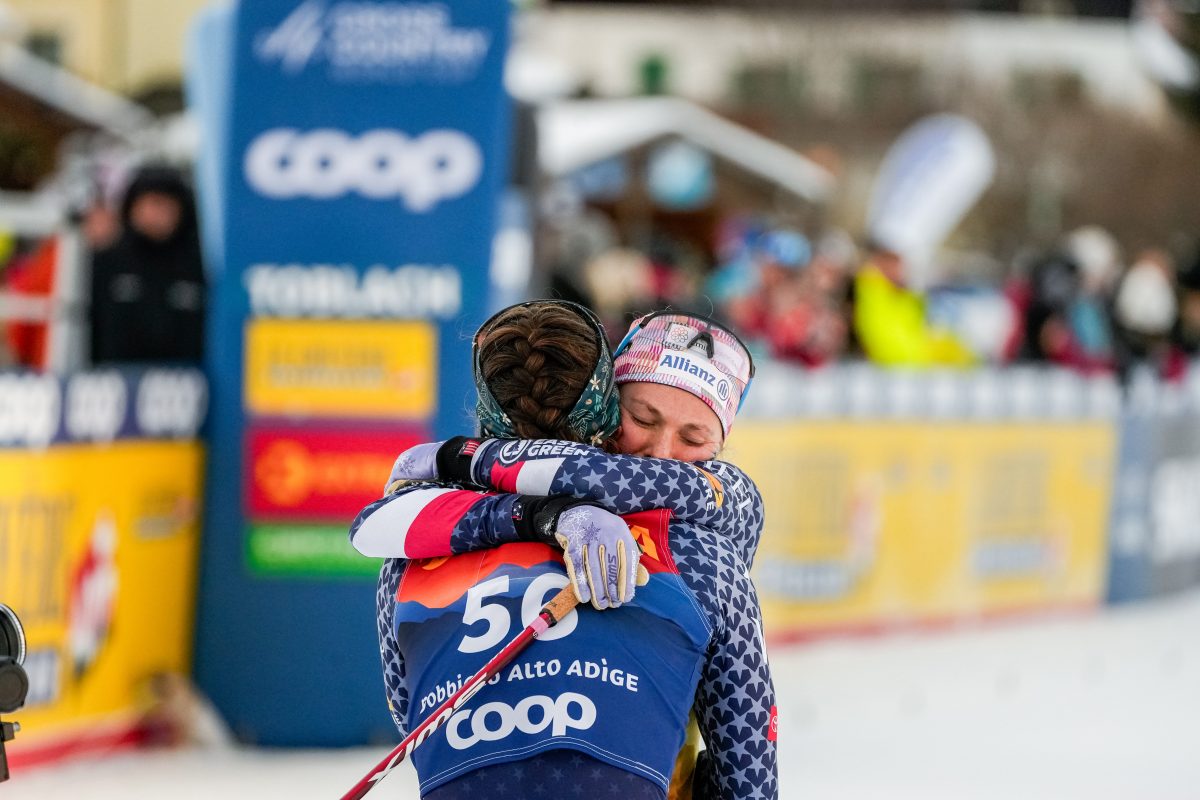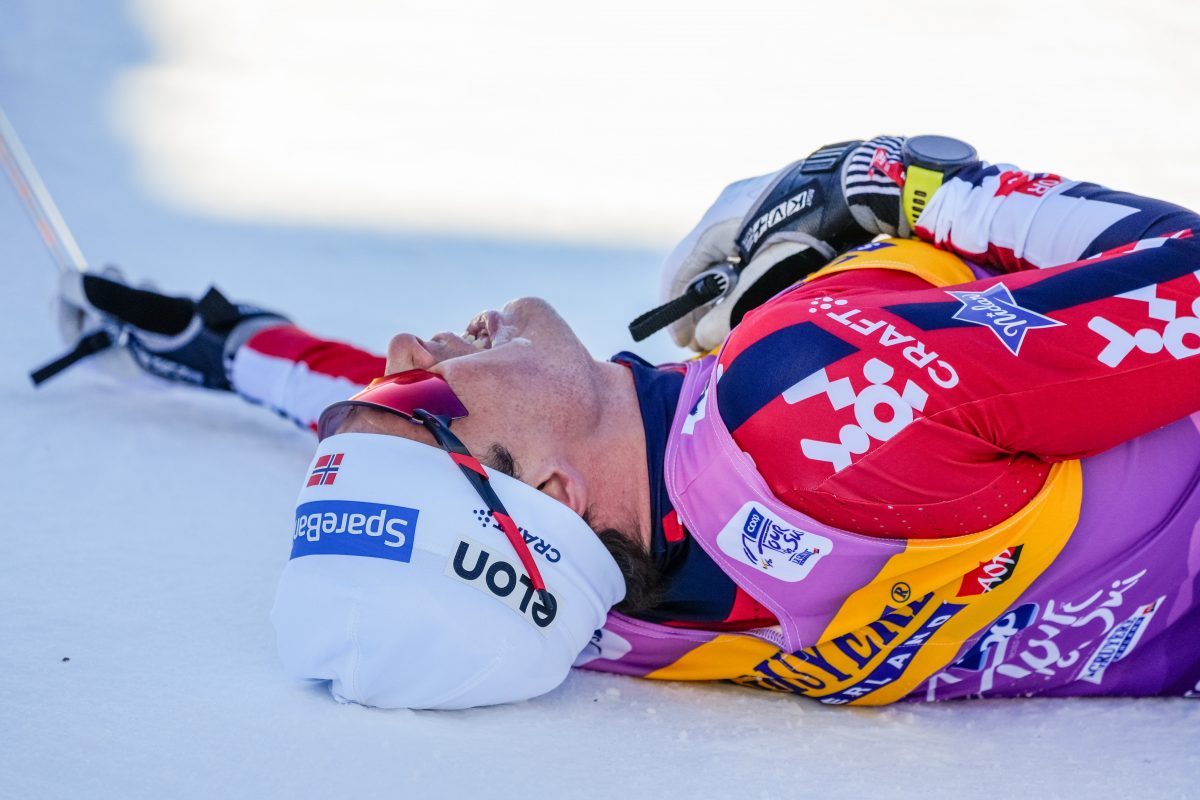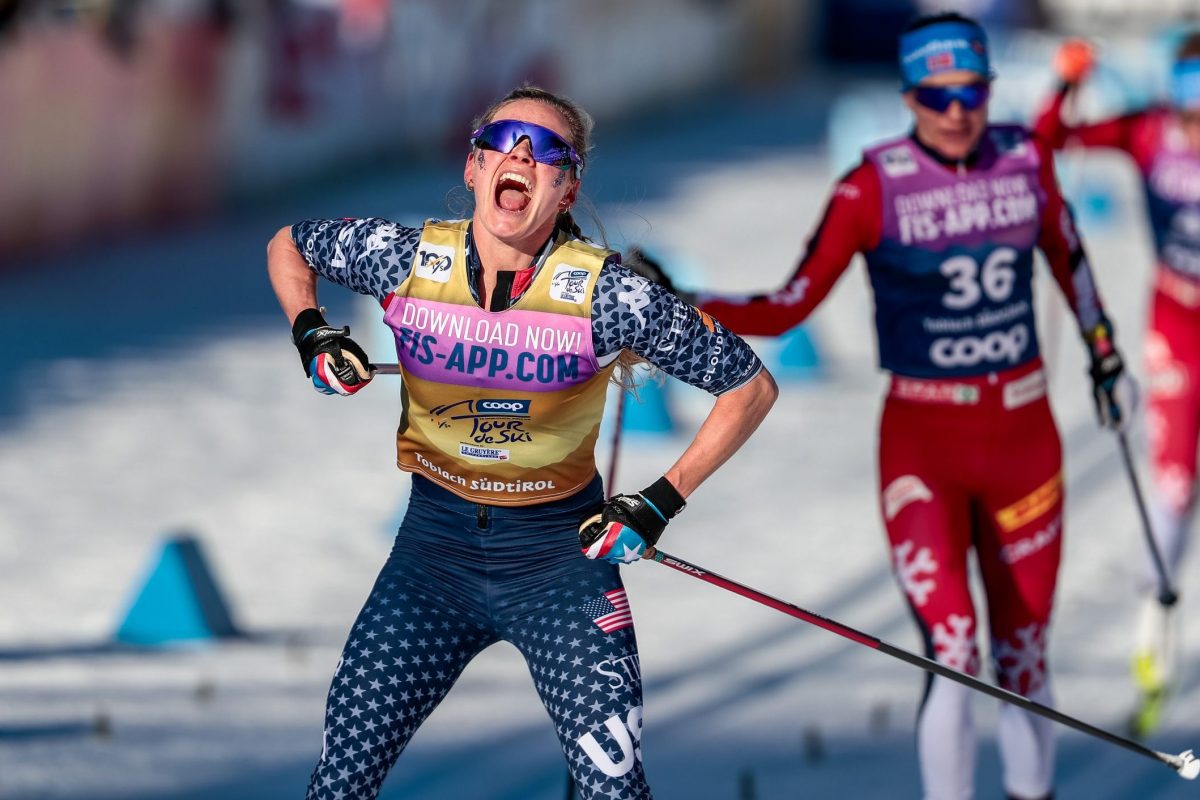
It is not often that a skier from Great Britain exists, much less turns heads on the international stage, but 20 year old Andrew Musgrave is doing just that.
In 2008, Musgrave attended his first World Junior Championships. A year later, he was back, finishing 12th in the 20 k pursuit, and followed that up with a 9th place finish in the 10 k skate. This season (2009-2010) he took the opportunity to show the Norwegians the finer points of the sport, taking seventh place in the 20 k classic and then winning the 10 k free at the Norwegian National Junior Championships.
FasterSkier secured an interview with the up-and-coming Scot–our first feature in a series titled Pros of Tomorrow, where we will hunt down and interview developing skiers and give you an exclusive look into what makes them tick.
FasterSkier: Dorset, England (where you were born), has not traditionally been thought of as a hotbed for developing young skiers, and I understand that you have lived in a variety of places. Can you explain how you managed to get involved in the sport of cross country skiing?
Andrew Musgrave: My dad’s job meant I moved around a lot when I was younger. I have lived in places as varied as the south of England, the Shetland Islands (some tiny islands in the sea between Norway and Scotland), and Alaska.
It was in Alaska where I learned to ski. I lived in Anchorage for 6 years, from when I was 5 years old until I was 11. I did a bit of racing, but I wasn’t very good. My brother was actually an okay racer, and was on the Alaska team for the U.S. Junior Olympics.
I moved back to Britain when I was 11, to a place called Huntly, in Scotland, and have lived here since. It is a bit of a random coincidence, but there is a cross-country ski club in Huntly. I had never really planned on continuing skiing when I moved back, but seeing as there was a club I thought I may as well join. There are actually a few other pretty good racers, who all come from the same club as me.
It was through the club in Huntly I got involved with the British Nordic Development Squad, a small team to help develop ski racers and racing in Britain (as the name suggests), and from there I got into more serious racing.
FS: Where do you do the majority of your training, both dryland and snow skiing?
AM: In the summer I train at home in Scotland. The British Team have training camps throughout Britain, which I go to as well. In the winter I spend a lot of time throughout Europe, and in particular Norway, racing and training. There is occasionally snow in Scotland, but to get reliable snow I have to travel.
FS: You took last year off school to train and ski–do you feel that decision to switch to full-time skiing was worth it? What are your plans for skiing and education this coming season?
AM: I have actually had two seasons training full time now. I did one season with the British team, and last season with a ski-gymnasium in Hovden, Norway.
I’m pretty sure training full time has made a big difference to my skiing. The main thing for me, coming from Scotland, was just the benefit of having snow to train on all winter, rather than having to go out on rollerskis at home. Training in Norway last season was also massively beneficial. Having a group of very talented people to train with can really help, especially in interval sessions, where you have to fight just to keep up, let alone be one of the fastest.
With full time training, I have gone from struggling to get inside the top 50 at World Juniors, and coming miles behind at small club races in Europe, to coming top 10 in the World Juniors, inside the top 50 at the senior World Championships, and winning the Norwegian Junior Nationals. Without full time training, I don’t think I would be anywhere near where I am now.
Next season will be my first season as a senior. I am going to be living in Lillehammer from August, with a guy I was with at Hovden-ski gymnasium last year. I am going to be racing with Team Hovden, as well as the British Team. Team Hovden is a senior team. The people on the team have had some pretty good results, including medals at World U-23s, Scandinavian Cup wins, and World Cup starts for Norway [most notably Maiken Caspersen Falla, a regular on the Norwegian Women’s Sprint team].
As well as just skiing next season, I am hoping to pass a Norwegian language test, which would mean I could start studying at university in Norway. I want to go on to study engineering.

FS: I think it’s pretty safe to say that cross-country skiing is still a fringe sport in Great Britain. What kind of exposure do you have in the mainstream media, opportunities to attract major sponsors, etc.?
AM: Cross-country skiing receives pretty much no publicity in Britain. I am sometimes in my local paper, The Huntly Express, but, to be honest, that isn’t the greatest achievement ever, as there are about three people who actually read it. I have a ski sponsor, but as far as opportunities for attracting major sponsors, there aren’t really any. Or maybe I’m just bad at attracting them.
FS: What kind of support do you have? Either from your Ski Federation or your club, in terms of financial backing, coaching, wax support, travel, training opportunities?
AM: The head coach of the British team, Roy Young, does a lot for us. He has a full time job, and is the British coach on top of that. He and few other coaches and volunteers do a lot of work planning and getting training camps and races organised. However, racing with the British team is pretty expensive, as the team doesn’t have any funding at all.
The athletes have to pay for accommodation, waxing, travel, not just for ourselves, but for the coaches too. So it ends up being very expensive.
A couple of other team members and I did get some personal funding last year, but I am not really too hopeful of getting any for the upcoming season.
As part of Team Hovden next year, I will have really good waxing support, and coaching within Norway, so I will be spending most of the season there, with only a few World Cups or races elsewhere.
FS: In your experience, has the ski community in Great Britain grown during the period of your involvement and success?
AM: In the time I have been involved in skiing in Britain, the level has increased massively. That is pretty much down to one person, the British head coach, Roy Young. He has done a massive amount to get people involved in the sport, and help them get to as high a level as possible.

FS: What are your plans for training and racing this summer? Any special camps or events you are taking part in? What is you schedule like in the fall and winter?
AM: As I said before I will be moving to Lillehammer in August. Before then, I have one more training camp with the British team. Up until September I am going to be training quite a lot of hours, with a few Team Hovden training camps, but no events in particular apart from that. If all goes well, I will start racing in November in Beitostølen. From there, I will be focusing on Norwegian Cup races, with maybe one or two early World Cups, before the World U-23 Championships.
FS: At just 20 years of age you have now been to every major event in the ski world – World Juniors, World Championships, the Olympics, and you are a regular starter on the World Cup. What’s next on your list of goals, either skiing or otherwise?
My goal is to improve at these events, and eventually win. The last two seasons, I have gone to World Cups and other major races, and although I have been a long way from last, haven’t been competing for a top position. My long term goal is to be the best skier on the World Cup, but I have a long way to go before that. My main focus next year is improving on my 45th place at the World Champs from two seasons ago. It will also be my first year as a senior, so the U23 World Champs will be a priority.




4 comments
midget22
July 17, 2010 at 8:34 am
what a hero!!
xclad
July 19, 2010 at 1:20 pm
He is fair loon is that boy. would nae want tae get in his wa fan hes gan full bore.
FasterSkier
July 19, 2010 at 3:06 pm
I was impressed watching Andrew race at the Olympics. While he may not have had the races he was hoping for, he appeared to be skiing with a belief that he belonged and was clearly putting it all out there, scrapping for every second – even in the team sprint where his teammate blew up leaving them way off the back.
sailguy
July 26, 2010 at 2:41 pm
Andrew made a big impression on me at the Olympics too. I spent most days on the side of the trail, usually two or three metres from the skiers.
You can see a lot more in people’s faces in person than on tv: you can see who is angry at having slow skis, you can see who has given up on the day and is skiing out the race as prep for the next one, and you can see who is not looking for excuses.
Despite being a long way back every time I saw him, Andrew was clearly trying to ski right at his limit. The last time up the staircase in the pursuit race, with no coaches left in the area, the tv cameramen packing up, and no one to see but a few volunteers, he tried to transition from offset (v1) to one skate (v2?) on a short less-steep section. It didn’t work for him this lap, but very few of the skiers dropped from the lead group were still trying to transition by the last lap.
Even if he never makes the top, it will be fun watching him try.